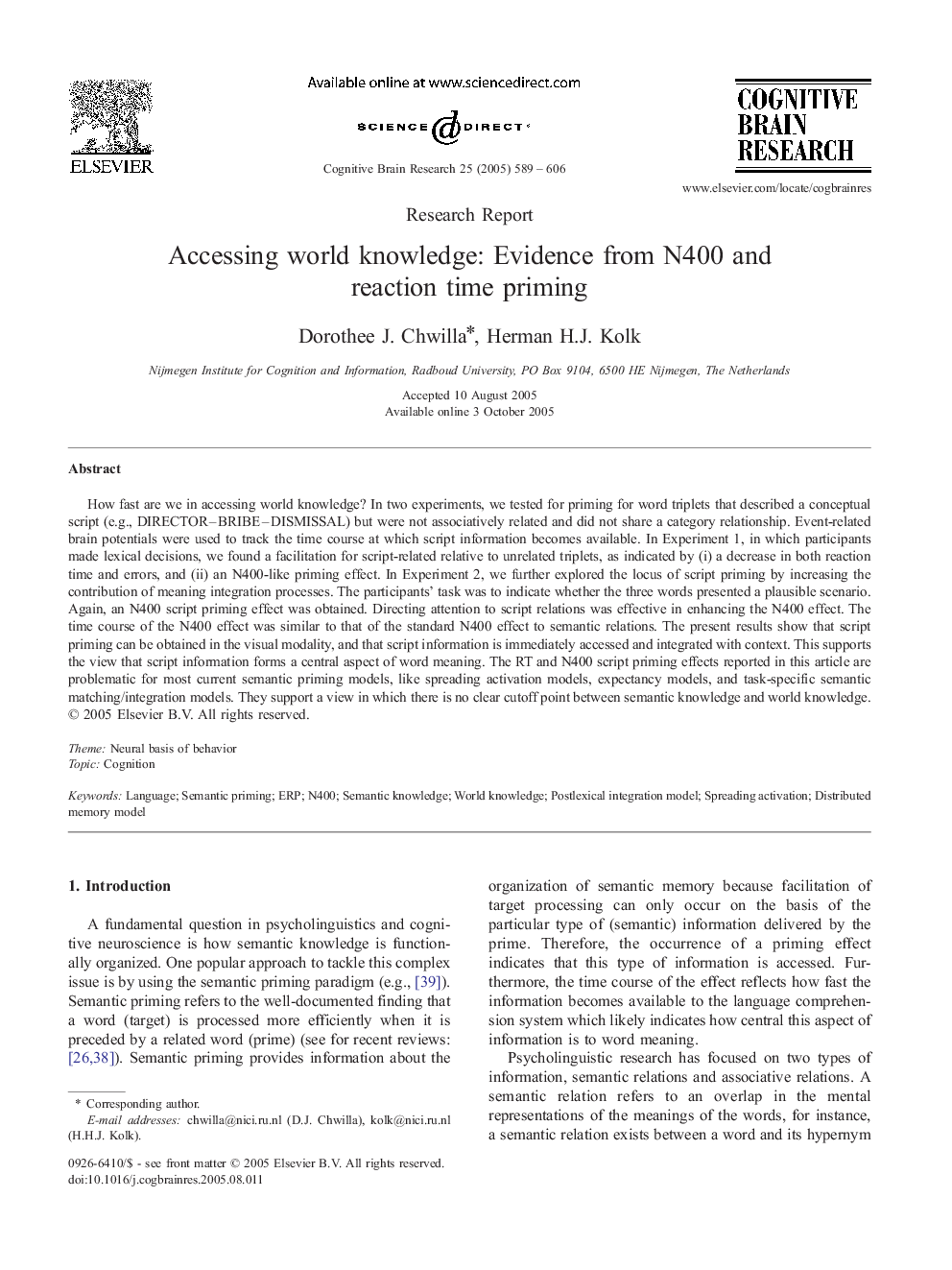| کد مقاله | کد نشریه | سال انتشار | مقاله انگلیسی | نسخه تمام متن |
|---|---|---|---|---|
| 9407951 | 1613038 | 2005 | 18 صفحه PDF | دانلود رایگان |
عنوان انگلیسی مقاله ISI
Accessing world knowledge: Evidence from N400 and reaction time priming
دانلود مقاله + سفارش ترجمه
دانلود مقاله ISI انگلیسی
رایگان برای ایرانیان
کلمات کلیدی
موضوعات مرتبط
علوم زیستی و بیوفناوری
علم عصب شناسی
علوم اعصاب رفتاری
پیش نمایش صفحه اول مقاله

چکیده انگلیسی
How fast are we in accessing world knowledge? In two experiments, we tested for priming for word triplets that described a conceptual script (e.g., DIRECTOR-BRIBE-DISMISSAL) but were not associatively related and did not share a category relationship. Event-related brain potentials were used to track the time course at which script information becomes available. In Experiment 1, in which participants made lexical decisions, we found a facilitation for script-related relative to unrelated triplets, as indicated by (i) a decrease in both reaction time and errors, and (ii) an N400-like priming effect. In Experiment 2, we further explored the locus of script priming by increasing the contribution of meaning integration processes. The participants' task was to indicate whether the three words presented a plausible scenario. Again, an N400 script priming effect was obtained. Directing attention to script relations was effective in enhancing the N400 effect. The time course of the N400 effect was similar to that of the standard N400 effect to semantic relations. The present results show that script priming can be obtained in the visual modality, and that script information is immediately accessed and integrated with context. This supports the view that script information forms a central aspect of word meaning. The RT and N400 script priming effects reported in this article are problematic for most current semantic priming models, like spreading activation models, expectancy models, and task-specific semantic matching/integration models. They support a view in which there is no clear cutoff point between semantic knowledge and world knowledge.
ناشر
Database: Elsevier - ScienceDirect (ساینس دایرکت)
Journal: Cognitive Brain Research - Volume 25, Issue 3, December 2005, Pages 589-606
Journal: Cognitive Brain Research - Volume 25, Issue 3, December 2005, Pages 589-606
نویسندگان
Dorothee J. Chwilla, Herman H.J. Kolk,